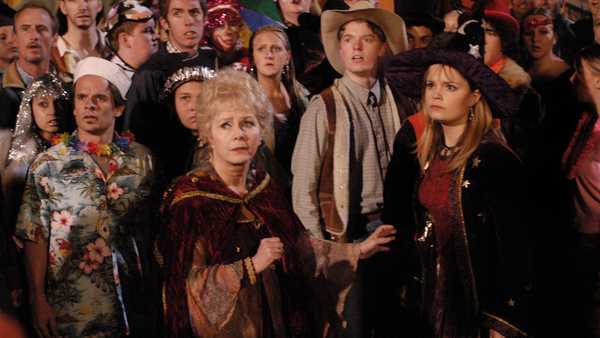Every competitive high school student has heard the myth that you need to take as many AP classes as possible to get into a "good" college -- and if you skip out on any core (math, English, science, history) AP class offered, even if you plan to major in an entirely different field, you're losing your competitive edge over a plethora of equally high-performing students. However, this is far from the truth. More AP classes in a high schooler's schedule can do more harm than good.
Many competitive students, particularly those applying to Ivy League or otherwise super-selective schools, feel that they must take every AP course possible in order to truly compete -- and they have to ace them. They believe that it doesn't matter if you plan to major in Art History, for example; you still need to take AP Calculus, and AP Biology, and any other class possible. After all, why waste GPA points on standard-level Arts classes when you could get a grade boost from AP classes that will make you a "well-rounded" student? However, there are a few notable issues with this perspective.
First, colleges don't want you to be well-rounded -- they'd rather have a T-shaped applicant, or one with a deep understanding and focus on a singular subject matter with a solid, but not extensive, base in the core disciplines. In fact, Jim Spohrer, who seeks out university partnerships for IBM, stated that "we would rather hire people from a start-up, acquire a start-up, or hire them from a failed start-up than hire people out of a university." These people, he explains, have the experience and knowledge of how to work well in small teams, work effectively with customers, and solve numerous types of problems.
On the contrary, many undergraduate students follow the same patterns laid out by their guidance counselors in high school, taking a few lower-level courses in many disciplines and only a few focused courses in order to prove their skills in a variety of areas. This "jack of all trades" approach actually harms students not much further on, when they begin searching for jobs with a specific focus in one area.
Another misconception in this focus is that selective schools not only encourage, but expect students to come in with a large number of AP credits. Students believe that to even have a shot at getting into these schools, they have to take every AP class possible. However, this is not the truth. College officials have stated that "three, four or five AP courses are sufficient" for competitive students.
A suggested plan is to take one AP course during the student's sophomore year and one or two each in junior and senior year. Not only does this approach allow students to focus on courses applicable to their field of study, but this also avoids students from becoming burnt out from being overloaded with coursework -- which leads to poorer grades. According to one study, "overloaded course schedules" are the most common source of major stress among students -- and one in three students will become burnt out from an overwhelming course load.
AP students are much better off taking only one or two AP courses at a time, both in their grades and in their health. Additionally, burn out is a major contributor to missing school or work -- meaning that overwhelmed students who stay home one day to recover from mental and physical exhaustion will only become more stressed once they return to school and have to make up missed work on top of everything else. It's a vicious and harmful cycle plaguing many high-achieving teens across the nation.
Many competitive students want to stand out and get ahead on their college coursework by taking AP classes. However, another viable, and increasingly popular, alternative is dual enrollment. Through dual enrollment, high school students are able to take general education and/or specialized technical courses at their local community college, allowing them to be in a college-level environment and to get used to the rigor, expectations, and course load of college coursework.
Plus, dual enrollment is often cheaper than AP -- dual enrollment courses are often free or highly discounted for students, whereas each individual AP exam costs $94. As a dual enrollment student, I only paid $10 per semester to take an unlimited number of community college courses, leading me to obtain not one, but two associate's degrees for only $50.
In my experience as both dual enrollment and AP student, my dual enrollment courses prepared me much more for my college-level coursework than my AP courses. Though one or two AP courses that I took allowed me valuable experience and credit for college, the workload was wildly different than my university coursework. AP courses are taught by high school teachers on a high school campus, and thus maintain the high school teaching method that involves guiding students through notes and lessons and giving monumental amounts of homework each night.
Though the material was nearly the exact same as the university equivalent, it was taught in a much different manner -- for example, in college, I was expected but not required to read the textbook and study on my own, and my classes relied on a handful of exam grades or papers. Though many of my STEM (Science, Technology, Engineering, and Math) courses in college have homework problems due, we are given multiple days to complete them, and they are sometimes not mandatory. And for about half of my classes, I have no homework due at all. I am expected to study and understand the material on my own, without my professor holding my hand.
Compare that with the quizzes, lab reports, readings, and practice problems I had to do on a daily basis in high school AP Biology, and there is a world of difference. However, my community college courses were designed in much the same fashion as my university courses and were specifically designed to correlate with specific university courses through my state's community college and university transfer program. Often, the courses are the exact same -- just under a different name, in a different classroom.
In summary, AP courses are good tools for allowing high-achieving students to earn college credit and stand out in admissions, but should not be used in abundance. Dual enrollment courses are much more similar to actual university courses, and are not "easy" AP alternatives, as some argue. If I had to do high school over again, I would have only taken a handful of AP courses, and focused my after-school hours on extracurriculars that would help me to stand out more on my college applications than another AP class.
College admissions officers agree -- if you're spending all your time doing homework for your AP classes, you don't have time to concentrate on extracurriculars in your chosen area of study. That internship at the local art museum is going to help you get into the Art History program at your top school much more than taking AP Calculus.
So drop the AP courses and become a master of all, rather than a master of none.



















